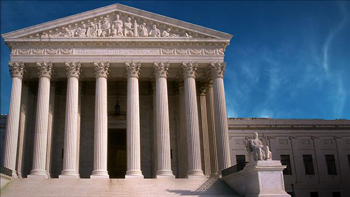Supreme Court rules on fair housing
By Nisa Islam Muhammad -Staff Writer- | Last updated: Jul 7, 2015 - 10:40:14 AMWhat's your opinion on this article?

|
Justice Anthony Kennedy wrote the opinion for the 5-4 majority. He emphasized that the original goal of the 1986 Fair Housing Act was to eliminate the government and private industry actions that had imposed the residential racial segregation and unequal conditions of the ghetto.
The opinion pointed out that, despite progress, those conditions continue to blight our country. Justice Kennedy was clear that in addition to eliminating barriers that kept minorities out of White neighborhoods, local governments must also address the harm of unequal conditions of slum and blight imposed by racial segregation.
According to the Supreme Court Ruling, the Federal Government provides low-income housing tax credits that are distributed to developers by designated state agencies. In Texas, the Department of Housing and Community Affairs (Department) distributes the credits.

|
“Disparate impact is an important protection for all of us. Today, families can feel more comfortable knowing that their right to housing will not be restricted because they have children, women who experience domestic violence can breathe easier knowing that they will not suffer eviction just because they suffered abuse, and communities of color can live with the security of knowing that the predatory lending practices that dumped millions of subprime loans into their neighborhoods will not be allowed,” explained Shanna L. Smith, President and CEO of the National Fair Housing Alliance.
“Neighborhoods still trying to recover from the financial crisis can have hope because disparate impact is an important tool in addressing unfair practices that contribute to economic and wealth disparities. Where we live makes such an important difference in the opportunities that are available to us throughout our lives. Every one of us should be able to make the decision about where we want to live free from illegal discrimination. This is what the Fair Housing Act is all about—making sure everyone has a fair shot.”
Justice Samuel Alito, wrote for the dissent, “By any measure, the Court today makes a serious mistake” that will “have unfortunate consequences for local government, private enterprise, and those living in poverty.”
Texas Attorney General Ken Paxton represented the views of the Texas Department of Housing and Community Affairs. He believes they exercised good faith when it “followed the preference under federal statutes for awarding tax credits to housing developments in lower-income Texas communities.”
The American Financial Services Association, the Consumer Mortgage Coalition, the Independent Community Bankers of America and the Mortgage Bankers Association agreed and filed an amicus (friend) brief with the court.
However, many in the Black community are elated with the ruling.
“The NAACP commends the Supreme Court for affirming the broad reach of the Fair Housing Act in combating inequality of housing opportunity. This ruling confirms that housing discrimination need not be intentional to be illegal,” said Cornell William Brooks, NAACP President and CEO.
“The use of disparate impact remains an important tool in ensuring that zoning laws and other housing restrictions that unfairly exclude people from certain neighborhoods are prohibited. Disparate impact also serves as a crucial mechanism in advancing the full enforcement of the Fair Housing Act and addressing the racial inequality which is still too often found in housing today.”
The FHA was adopted shortly after the assassination of Dr. Martin Luther King, Jr. Recognizing that persistent racial segregation had left predominantly Black inner cities surrounded by mostly White suburbs, the Act addresses the denial of housing opportunities on the basis of “race, color, religion, or national origin.”
“Today’s landmark Supreme Court rulings on the crucial issues of health care access and housing discrimination will have a far-ranging impact on economic justice in the United States, National Urban League President and CEO Marc H. Morial said.
“Access to affordable, quality health care and housing are key to the economic stability of working families,” Morial said. “Further, the court’s ruling that racial discrimination in housing need not be intentional to be illegal breaks down barriers to homeownership—the most significant factor in building wealth and financial security,” Mr. Morial said.
Further, the housing discrimination ruling represents more than access to decent, affordable housing, he explained.
“The American middle class is built on homeownership,” he said. “Entrepreneurs have built their businesses with the equity in their homes. Parents have sent their children to college with the equity in their homes.”
This case, involving the State of Texas’ perpetuation of racial segregation in its Low Income Housing Tax Credit program, will now be sent back to U.S District Judge Sidney Fitzwater for further proceedings.
INSIDE STORIES AND REVIEWS
-
-
About Harriett ... and the Negro Hollywood Road Show
By Rabiah Muhammad, Guest Columnist » Full Story -
Skepticism greets Jay-Z, NFL talk of inspiring change
By Bryan 18X Crawford and Richard B. Muhammad The Final Call Newspaper @TheFinalCall » Full Story -
The painful problem of Black girls and suicide
By Charlene Muhammad -National Correspondent- » Full Story -
Exploitation of Innocence - Report: Perceptions, policies hurting Black girls
By Charlene Muhammad -National Correspondent- » Full Story -
Big Ballin: Big ideas fuel a father’s Big Baller Brand and brash business sense
By Bryan Crawford -Contributing Writer- » Full Story






 Click Here Stay Connected!
Click Here Stay Connected!








